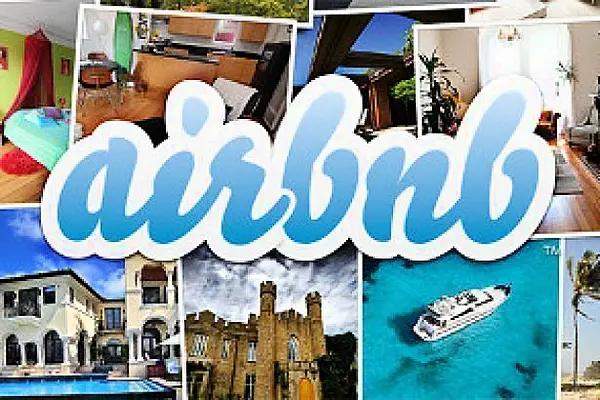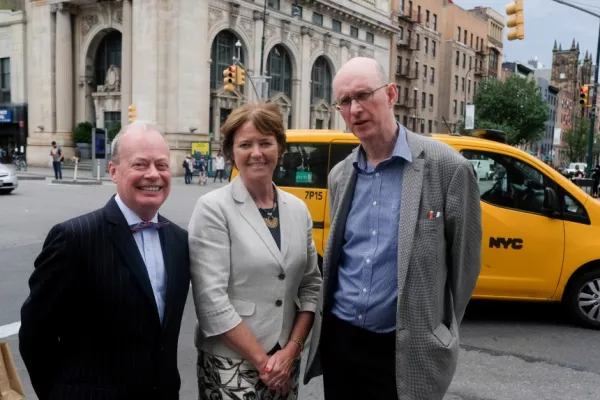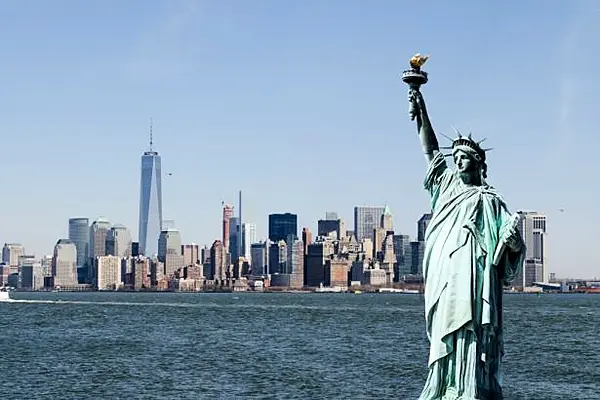Rhett Johnson, 34, has earned as much as $1,000 a month renting out the living room and its sofa bed in his one-bedroom apartment in Manhattan.
Airbnb, the San Francisco-based lodging-by-web platform he uses, is trying to enlist him and 46,000 other New York hosts in a political movement. Its most immediate goal: to stop Governor Andrew Cuomo from signing a law that would fine Airbnb users as much as $7,500 if they advertise short-term stays in unoccupied apartments.
Johnson and other hosts are being urged to mobilize and resist such laws. At stake for Airbnb and other “sharing-economy” companies, such as Uber Technologies Inc., is the risk regulators pose as the firms expand globally. From city to city, they face backlash from established, traditional competitors, whether hoteliers or the taxi industry.
“You, the Airbnb community, are the face of a movement,” former Philadelphia Mayor Michael Nutter, the paid chairman of an Airbnb advisory council, told New York users at a Sept. 10 meeting.
Home Rules
Nutter, 59, ended his two terms in January after guiding unanimous passage of a bill legalizing and taxing Airbnb rentals before the 2015 visit of Pope Francis and the 2016 Democratic National Convention. He, along with the former mayors of Rome, Houston and Adelaide, Australia, are helping Airbnb navigate local regulations.
Chris Lehane, hired by Airbnb’s 35-year-old CEO Brian Chesky a year ago as head of policy and public affairs, is leading the challenge to organize users into a disciplined force. Lehane was a consultant in the Clinton White House and also has known Cuomo almost 20 years.
Lehane says Airbnb wants to work with governments, not fight them. On Sept. 6, when the company said it would sue Cuomo and the legislature if the bill became law, its attorney wrote the letter “more in sadness than anger,” Lehane said.
Extra Cash
In a city where Mayor Bill de Blasio won election in 2013 describing income inequality as the defining issue of our time, Lehane argues that his company represents a way for people to help make ends meet.
In New York, “the overwhelming majority of people who do this are middle-class, everyday folks who use the platform to generate supplemental income,” Lehane said in an interview. “This is an idea so big and so popular special interests are not going to be able to stop it.”
Lehane got a hostile reception from New York’s City Council a year ago when he appeared at a hearing vowing to work with them and the state government to rewrite “horse-and-buggy” housing laws.
Popular Demand
The company acknowledges that thousands of its members are violating a law that prohibits rental of an unoccupied apartment in buildings with three or more units for less than 30 days. Lehane says that law, adopted in 2010, two years after Airbnb was founded, didn’t anticipate the rapid growth of the company. It has 100 million users in 35,000 cities.
Airbnb’s New York opponents cite studies by Attorney General Eric Schneiderman and a non-profit tenants rights group showing hundreds of users offering listings of short-term rentals for maximum profit. They also say it’s unfair to permanent residents to have transients traipsing through buildings.
Lehane said Airbnb has purged 2,500 hosts with multiple apartment offerings. Some of the site’s multiple ads are bed-and-breakfasts and other licensed lodgings, he said.
Depleting Stock
Peter Ward, president of the New York Hotel and Motel Trades Council, a union representing 32,000 workers, said Airbnb “has been breaking our laws with impunity.”
“Their unchecked growth is depleting our affordable housing stock and driving up rent, while threatening family-sustaining hotel service jobs,” Ward said.
Airbnb’s opponents -- individuals and businesses aligned with hotels, their union, or the real-estate industry -- have donated more than $26 million to Cuomo, lawmakers and City Council members since 2010, according to Followthemoney.org, a website operated by the National Institute on Money in State Politics.
Share Better, an opposition group made up of residents, politicians and housing activists, said this week it plans a “six-figure” TV and digital ad campaign accusing the company of hiding profits and evading “hundreds of millions in taxes” worldwide.
Lobbying Firms
Airbnb, meanwhile, has hired lobbyists including James Capalino, who has raised $50,000 for de Blasio in the past year, including a $10,000 personal donation. Capalino represented both the owner of a Lower East Side nursing home and the developer who purchased it, and persuaded city officials to turn it into a luxury housing site, a transaction that has raised questions and been the focus of investigations.
The bill awaiting Cuomo’s decision was approved by the legislature in June after urging by hotels, their unions, landlords and tenants-rights groups. Dani Lever, a spokeswoman for the governor, declined to say whether he would sign it.
Cuomo has until Dec. 31 to decide. If he approves, people who use Airbnb to advertise lodging in violation of state law would face a $1,000 fine, escalating to $5,000 for a second offense and as much as $7,500 for subsequent violations.
Assemblywoman Linda Rosenthal, a Manhattan Democrat who sponsored the bill, says Airbnb won’t weed out unlawful transactions.
“The highly paid Airbnb executives don’t really care about the affordable-housing crisis in New York,” she said. “They make so much money from illegals they don’t want to.”
Assemblyman Joseph Lentol, 73, who’s represented Brooklyn for 44 years and witnessed its transformation, cast one of six votes against the fines, backing Airbnb.
“I come out on the side of progress,” he said.
News by Bloomberg, edited by hospitality









